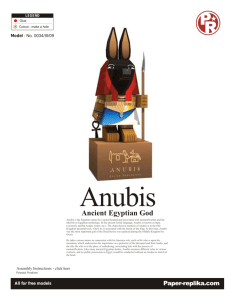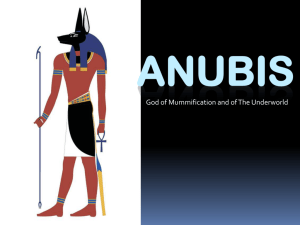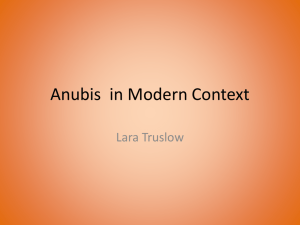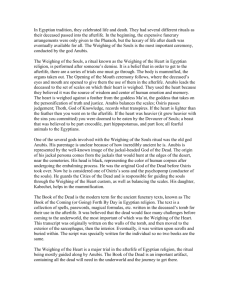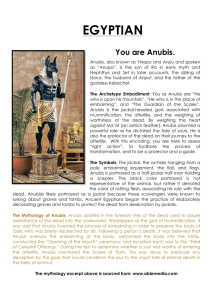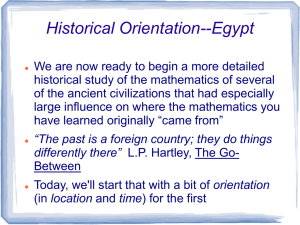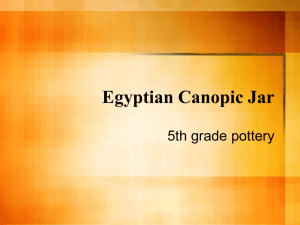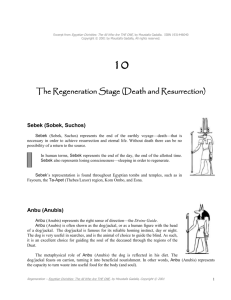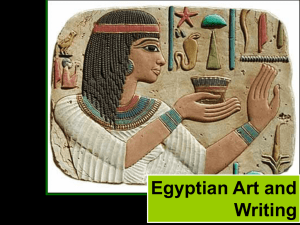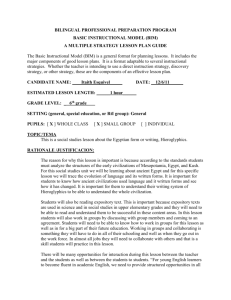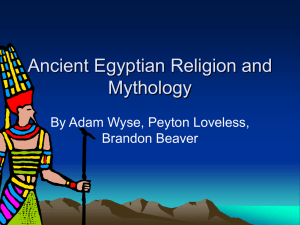Egyptian Gods Project 8
advertisement
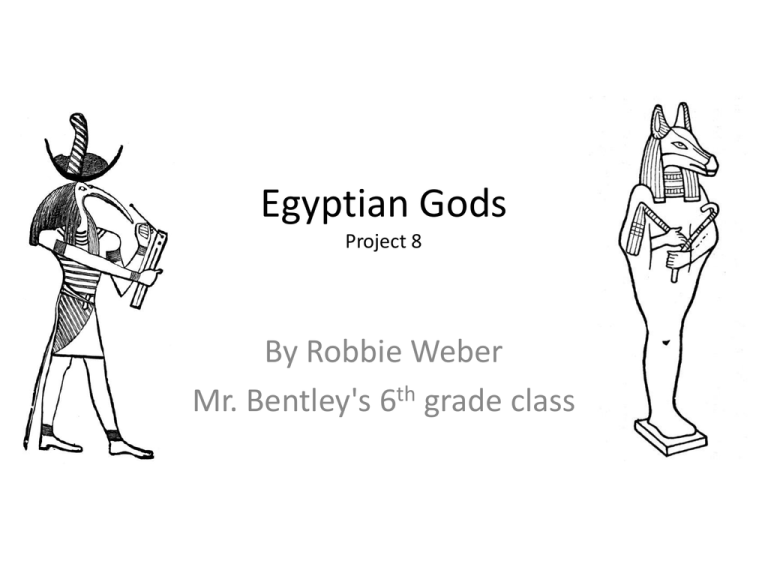
Egyptian Gods Project 8 By Robbie Weber Mr. Bentley's 6th grade class Anubis Anubis is the Greek name for a jackalheaded god associated with mummification and the afterlife in Egyptian mythology. The oldest known mention of Anubis is in the Old Kingdom pyramid texts, where he is associated with the burial of the Pharaoh. At this time, Anubis was the most important god of the Dead but he was replaced during the Middle Kingdom by Osiris. Like many ancient Egyptian deities, Anubis assumes different roles in various contexts, and no public procession in Egypt would be conducted without an Anubis to march at the head. Anubis' wife is a goddess called Anput, his female aspect, and their daughter is the goddess Kebechet. Anubis's parents are: ra (early myth),nephthys and Osiris or Set. His child is Horus (in some accounts) Anubis name in hieroglyphics is Ra Ra is the ancient Egyptian sun god. By the Fifth Dynasty he had become a major god in ancient Egyptian religion, identified primarily with the mid-day sun. The meaning of the name is uncertain, but it is thought that if not a word for 'sun' it may be a variant of or linked to words meaning 'creative power' and 'creator'. To the Egyptians, the sun represented light, warmth, and growth. This made the sun god very important as the sun was seen as the ruler of all that he created. The sun disk was either seen as the body or eye of Ra. Ra’s parents is ocean nun Ra in hieroglyphics Sobek In Greek, was the deification of crocodiles, as crocodiles were deeply feared in the nation so dependent on the Nile River. Egyptians who worked or travelled on the Nile hoped that if they prayed to Sobek, the crocodile god, he would protect them from being attacked by crocodiles. The god Sobek, which was depicted as a crocodile or a man with the head of a crocodile was a powerful and frightening deity; in some Egyptian creation myths, it was Sobek who first came out of the waters of chaos to create the world . As a creator god, he was occasionally linked with the sun god Ra. Sobek’s name in hieroglyphics Key to hieroglyphics There are a lot of different translations of Egyptian hieroglyphics. Often a person's name was followed by a sign showing that the name is not just some obscure Egyptian word, and that he or she was a man or a woman: My name in hieroglyphics Bibliography Google.com/ images Wikipedia.org Dictionary.com quizland.com/hiero.mv eyelid.co.uk/e-name.htm
